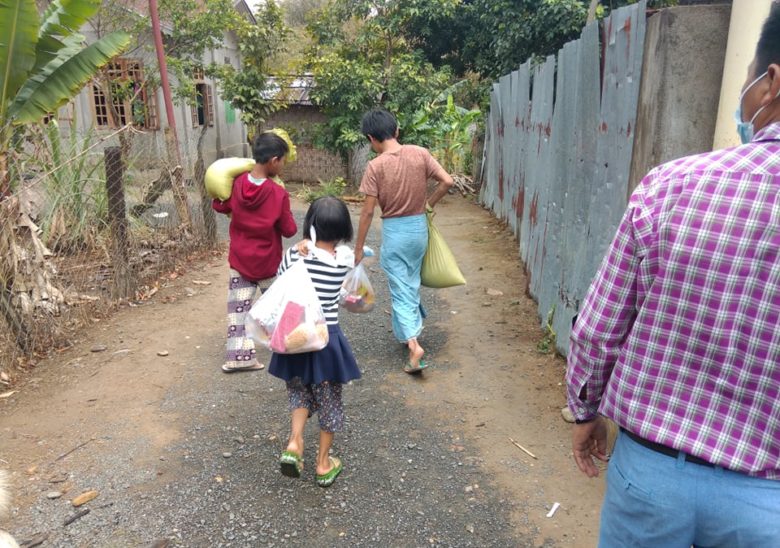Fida launches emergency aid in Myanmar – “The corona pandemic has plunged the poorest into a humanitarian crisis,” reports a Fida employee

The protracted corona pandemic and the revolution in February have caused a humanitarian crisis in Myanmar. Fida is responding to the situation by providing aid to the worst affected communities in its work area with the support of the Ministry for Foreign Affairs.
The worsening corona pandemic and the difficult political situation in Myanmar have caused a humanitarian crisis. Travel restrictions, unemployment and a high risk of illness have increased the need for help. Families who are already vulnerable are struggling with their livelihoods.
– Families living on a daily wage are running out of food stocks. The most difficult situation is for people with disabilities and single-parent families, whose livelihoods are very low already, says Jukka Tasanen, Fida’s South Asia Regional Manager from Bangkok.
Healthcare’s capacity to treat disease has already collapsed in many places.
– The number of COVID-19 cases has started to grow rapidly in Myanmar, and the capacity of healthcare to treat cases has already collapsed in many places. However, our program staff in Yangon is doing well. We are in frequent contact, as they update the situation, says Jukka Tasanen.
The World Food Program has already been able to launch a relief program in Myanmar. In the coming weeks Fida is planning emergency relief in all of its work in Yangon, Kachin and Rakhine.
Food, hygiene, and livelihood support
Fida has a development cooperation program in Myanmar, supported by the Ministry for Foreign Affairs, which normally focuses on the development of education by organizing afternoon children’s clubs with learning centers in Myanmar in cooperation with the Assemblies of God church. Children get school support and English lessons in the clubs. In addition, Fida has begun interfaith peacebuilding.
About 10,000 people receive help from Fida.
Due to Corona restrictions and political uncertainty, the learning centers have been partially closed. Because there is a great need for humanitarian aid in poor communities, emergency aid will be delivered in July to all the communities where the learning centers are located. We will use EUR 35,000 for this. The Ministry of Foreign Affairs has approved the change in the use of funds.
The support will be used to provide food, support families’ livelihoods, and to purchase hygiene products and medical supplies. With the support, we want to ensure the continuity of children’s education of the poorest families as the Corona situation eases. A total of 10,000 people will receive help. About 5 -10% of them are people with disabilities.
